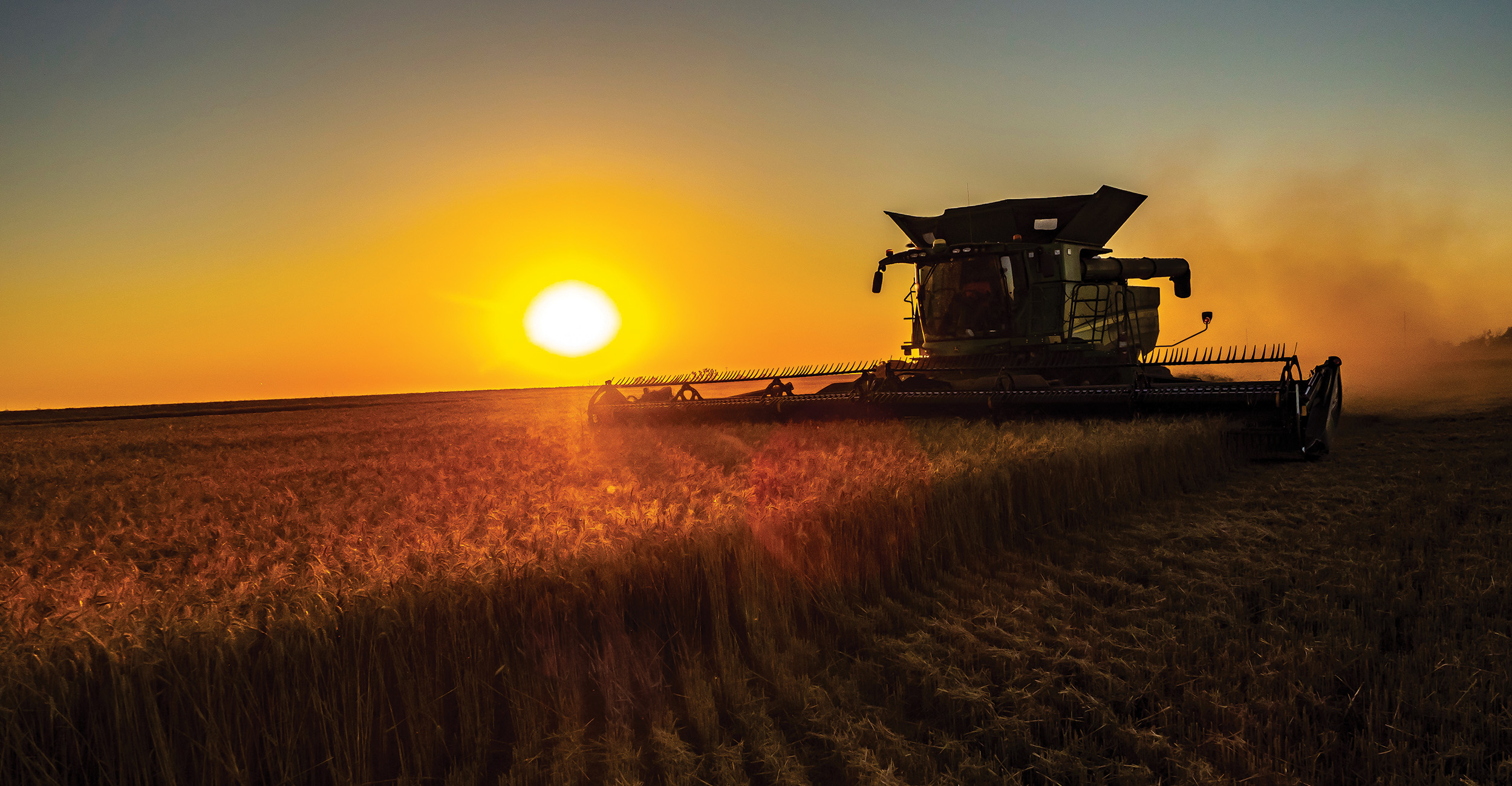
Extension and OSU-CHS partner to offer mental health care to farmers and ranchers
Wednesday, August 31, 2022
Media Contact: Mack Burke | Associate Director of Media Relations | 405-744-5540 | editor@okstate.edu
In a profession defined by backbreaking labor, life-altering financial decisions and the mood of Mother Nature, farmers and ranchers are especially vulnerable to mental health issues.
The percentage of Oklahomans with a mental health condition — such as anxiety or depression — was nearly four times higher during the pandemic than it was in 2019, according to the Oklahoma-based, nonpartisan Healthy Minds Policy Initiative. The organization also reports the state’s rural suicide rate has increased 27% since 2017, compared with a 3% rise in urban areas.
To help combat the trend, the Oklahoma Department of Agriculture, Food and Forestry secured a $500,000 grant last year from the U.S. Department of Agriculture’s National Institute of Food and Agriculture to provide one year of funding for the Project ECHO program: Heal the Harvester.
Hundreds of Project ECHO programs worldwide link community providers and support specialists to serve underserved and remote communities through virtual mentorship. The Project ECHO line at the Oklahoma State University Center for Health Sciences offers training courses on topics such as addiction medicine, pediatric psychiatry and now the heartland’s growing mental health concerns.
Launched in October 2021, Heal the Harvester provides OSU Extension educators and other community leaders with the knowledge and skills to identify a mental health crisis and connect farmers and ranchers with medical assistance.
“Life in agriculture is sometimes tough and isolating,” said Oklahoma Secretary of Agriculture Blayne Arthur. “Producers are certainly some of the most resilient people, but natural disasters, disease, retailer demands, market uncertainties and misconceptions and a seemingly growing list of other issues, wear on everyone.”
The OSU-CHS Project ECHO line provides management and information technology infrastructure for Heal the Harvester while OSU’s Dr. Jason Beaman facilitates video sessions on mental health education and consultation for Extension educators. Beaman is chair of psychiatry and behavioral sciences at OSU-CHS and the executive director of training and education for OSU’s National Center for Wellness and Recovery.
“Having Extension educators interact with farmers and ranchers on the ground is paramount,” he said. “When someone comes into a county Extension office with schizophrenia, or a rancher is going to lose his ranch because of alcoholism, educators can offer information and support. We want to equip educators with the skills to do their daily jobs even better.”
The education segment of each biweekly video session involves a 15-20 minute lecture followed by designated time for OSU Extension educators to discuss real cases of farmers or ranchers in need of mental health assistance. Beaman answers questions and directs educators to therapists, physicians and other mental health professionals.
Dr. Damona Doye, associate vice president of OSU Extension, said helping health care providers reach people in underserved rural areas is impactful for many Oklahoma families. OSU Extension educators naturally connect with farmers and ranchers, families and youth.
“Addressing mental health issues contributes to our mission of providing practical, researchinformed knowledge for communities,” Doye said. “We’ve assisted in this educational area throughout my career, dating back to challenges experienced during the farm financial crisis in the 1980s. The pandemic has added to everyone’s stress, and we want to assist.”
Beaman also has conducted research indicating that the opioid epidemic, often a factor in mental health struggles, has affected more residents and spread faster in rural counties than any other demographic.
“Farmers and ranchers have a strong work ethic that sometimes works against them,” Beaman said. “When they are injured and are instructed to take it easy, they take medication to work through the pain. Opioids block the pain the body uses to signal a need for rest.”
As Heal the Harvester programming progresses, Beaman said the webinars have been highly attended with great participation and questions. The OSU team is currently identifying three county Extension offices where telemedicine services can be made available in the future.
“If you were to call my clinic to make an appointment, the wait list is six to nine months,” Beaman said. “But if you go to an Extension office, we’re going to get you in much quicker, whether that involves meeting on an iPad or facilitation with another specialist. We’re going to prioritize our farmers and ranchers with immediate access to mental health care.”
After the one-year USDA NIFA grant project concludes Oct. 1, Beaman and the OSU team will continue analyzing data they’ve collected from rural areas. Beaman said he has received inquiries about Heal the Harvester from around the country, and once the findings are published later in 2022, he anticipates many more opportunities to serve rural Oklahomans.
“We’re happy to pave the way on the methodology and framework of determining mental health outcomes,” he said. “We’ll be able to study our research over the next few decades, continuously building on this rural mental health infrastructure.”
Photos by: Todd Johnson
Story by: Gail Ellis | STATE Magazine
